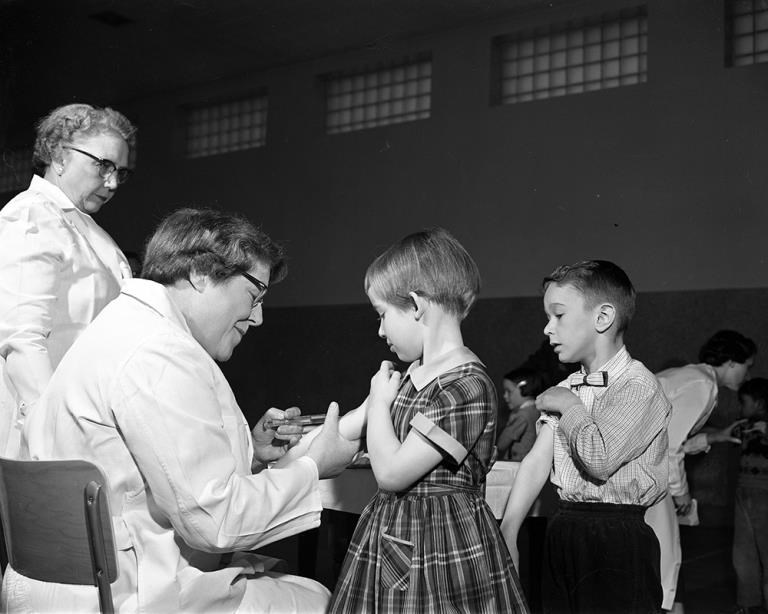Two local medical experts say there is unlikely to be a polio outbreak in Colorado but they also fret that more people are turning away from the historically effective polio vaccine.
“It’s so sad, we were so close to the complete eradication of polio,” Dr. Michael Roshon, director of US Acute Care Solutions National Clinical Governance Board and quality director for St. Francis Medical Center, as well chief medical officer of USA Cycling. “But now I am worried.”
There has not been a confirmed case of polio in the United States in nearly a decade. Before a vaccine was created in 1955, the disease tore through the United States, afflicting and in some cases paralyzing young and old, including U.S. President Franklin Roosevelt.
There were roughly 15,000 cases of polio in the 1950s and by the 1970s, the number dropped to just 10 cases, according to the Centers for Disease Control.
The U.S. has had no confirmed cases of polio since 2013. But in July, an unvaccinated man in Rockland County, New York, contracted polio. The polio virus has also emerged in London and Jerusalem.
Colorado also has no confirmed cases of polio, which can be detected through wastewater, Rushon said. Most people who have contracted polio also have relatively mild, flu-like symptoms, he said.
An outbreak of polio and other potentially dangerous diseases can still happen as vaccinations lagged during the COVID-19 outbreak, Ruhson said.
“We’ve had two years of a normal vaccine plan disrupted for a lot of people,” he said. “This can be true for other diseases like measles and rubella.”
Vaccinations also came under fire politically, Rushon said, which led to pockets of people refusing to get them altogether.
“Typically schools require a polio vaccine as part of a standard immunization plan,” he said. “But there are more and more cases of people refusing vaccines for whatever reason.”
“We’ve had hundreds of millions given a polio vaccine and we know this is a safe vaccine,” he added. “But the risk of a severe polio outbreak would be catastrophic.”
Colorado’s school and child care immunization data show that 94.86 percent of the state’s school-aged children in 2021 were vaccinated against polio. “Which is good news,” Dr. Michelle Barron, senior medical director of infection prevention and control for UCHealth, recently stated on UCHealth’s website.
Barron said more diseases like polio can emerge because during the COVID-19 pandemic, people put off routine immunizations, preventive health procedures like mammograms and colonoscopies, and yearly checkups with doctors.
“Our vulnerable population now is higher than it has ever been,” Barron said. “There is no argument about the safety and effectiveness of vaccines that we’ve been using over and over. You can have feelings about COVID, but there are a lot of other vaccines that are extremely important, and you need to make sure you are up to date, whether it is your kids or the adults.”
Polio is an enterovirus, so fecal/oral spread is the most common way that the virus is transmitted, Barron said. “Virus particles found in fecal matter can be spread to the mouth via unwashed hands, or through food or drinks that have been contaminated.”
For people who have completed their normal childhood vaccinations, they will be protected if they are inadvertently exposed, Barron said. There are people in Colorado who don’t get their vaccines so…”there are certainly going to be pockets in Colorado that are at risk,” she said.



